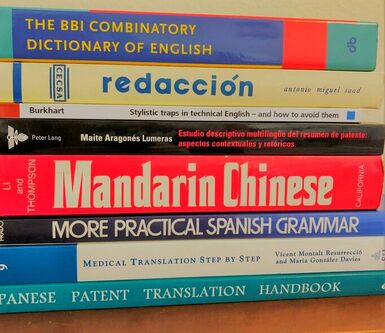Healthcare for patients with limited English proficiencyOPEN LETTER TO GOVERNORS AND HOSPITALS The Certification Commission for Healthcare Interpreters (CCHI) has issued an open letter to governors and hospital associations to raise awareness about the safety of healthcare interpreters and language access services for patients with limited English proficiency (LEP) and their families, as well as the safety of all healthcare workers during the current unprecedented COVID-19 pandemic. Healthcare interpreters work in close quarters and in close proximity to patients and the safety of all workers with direct patient contact must be the number one priority. This includes physicians, nurses, allied professionals, and face-to-face/on-site healthcare interpreters. PERSONAL PROTECTIVE EQUIPMENT The open letter reminds hospitals and healthcare systems that face-to-face/on-site healthcare interpreters should be provided the same level of protection and use of personal protective equipment (PPE) as any healthcare provider for whom they are interpreting while also recognizing that PPE shortages may necessitate certain limiting measures. It is extremely important for managers to have transparent and honest conversations with interpreters and collectively come to an understanding on when and to whom PPE is provided. ALTERNATIVES TO ON-SITE INTERPRETATION When PPE is not available there are alternatives to face-to-face/on-site interpretation. Ultimately, if appropriate PPE is not available for an interpreter, then alternatives must be provided to both reduce the spread of the coronavirus by interpreters and ensure their personal safety. Unlike most healthcare providers, interpreters work in different departments, different facilities, and even different campuses throughout the day. Their inadequate protection will result in spreading the virus not only in the community and to their families but also to other healthcare workers and patients within and outside a specific facility. REMOTE INTERPRETING The CCHI recommends that all hospitals, health systems, clinics, and healthcare providers deploy remote interpreting for most of their interactions with LEP patients and their families, as the primary modality for delivery of language access services in the time of this pandemic. The implementation of remote interpreting may take time and require certain information technology solutions as well as evaluation for compliance with laws and regulations. However, the implementation of remote interpreting will allow facilities to reserve much needed PPE for healthcare professionals who must be in direct contact with patients. Furthermore, face-to-face interpreters have a higher risk of becoming a vector of infection even with the appropriate use of PPE due to the mobility of their job. When institutions utilize telemedicine and telehealth options for providing care, they must incorporate remote interpreting into these solutions to ensure equal access to healthcare for limited English proficiency patients. HOW TO IMPLEMENT REMOTE INTERPRETING Remote interpreting may be implemented in the following ways:
A BRIEF NOTE ON CONFERENCE INTERPRETING The International Association of Conference Interpreters (AIIC) has issued best practices for interpreters during the COVID-19 crisis. AIIC's Technical and Health Committee and Taskforce on Distance Interpreting specify rules on social distancing in interpreting booths, social distancing for sign language teams, disinfection, and the use of disposable gloves and personal headset covers. REFERENCE CCHI Open Letter on Ensuring Healthcare Interpreters’ Safety during the COVID-19 Pandemic. April 3, 2020. https://cchicertification.org/covid-19/covid-19-update/.
0 Comments
Tips and advice on where to find a qualified professional translator for your business needs. A translator works with the written word and an interpreter works with the spoken word. Do you have a document requiring translation or do you need to schedule an interpreter for a court hearing, business negotiation, or medical appointment? Here's some advice on how to find a professional translator or interpreter. RECOMMENDATIONS Ask a trusted colleague in your industry for a referral to a translator or interpreter they work with regularly. If you know a qualified Spanish translator but need to have a document translated into French, ask the Spanish translator for a referral. Translators often network with one another and asking for a recommendation is a great place to start when looking for a professional translator. ONLINE SOURCES Search engines Use your preferred search engine to locate the websites of professional translators. Be specific: "English Italian interpreter" deposition "San Francisco" or "Chinese English translator" "journal articles." Professional translators' associations National and local translators' associations operate directories for their members which you can access for free. Here is a partial list of websites with specific links to search for a translator or interpreter.
National association American Translators Association Find a translator or interpreter Regional and local groups Association of Translators and Interpreters of Florida Find a professional Carolina Association of Translators and Interpreters Find a translator/interpreter Colorado Translators Association Directories > Translators and Interpreters Michigan Translators/Interpreters Network Find a Translator/Interpreter New Mexico Translators and Interpreters Association The Directory New York Circle of Translators Find a Linguist Northwest Translators & Interpreters Society Find a language specialist Oregon Society of Translators and Interpreters Find a translator/interpreter HELPFUL GUIDELINES
Still have questions? Contact me at https://www.integrativetranslations.com/ and I will do my best to help. Directory information provided as a public service for those seeking a dedicated professional to assist with translation or interpretation services for a given language. The inclusion of a particular directory does not denote endorsement of the information therein. An individual's inclusion in a particular association directory indicates only that said individual is a current member of the association.
|
�
AuthorKerilyn Sappington is the founder of Integrative Translations, which specializes in the Chinese to English translation of topics in conventional and complementary medicine. Archives
June 2024
Tags
All
|





